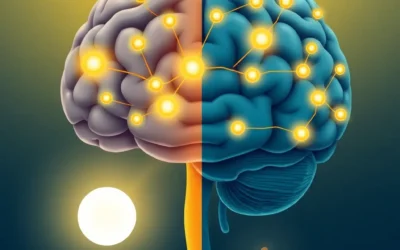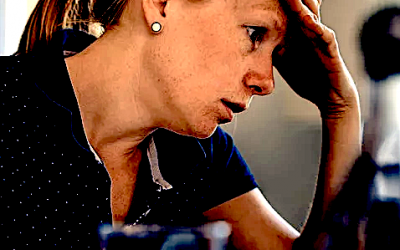So what is the main reason that some get over their ex and can get over a breakup faster than others?
Here are a few reasons on the Psychology of Breakups: Why Some Take Longer to Heal
Breakups are a universal human experience, yet the way people cope with them can vary dramatically. Some individuals seem to bounce back quickly, while others linger in emotional turmoil for an extended period. The reasons behind these disparities are complex and multifaceted, involving psychological, social, and personal factors. In this exploration, we will delve into why some people take longer to get over a breakup than others, shedding light on the intricacies of the human heart and mind.
1. Attachment Styles
One of the most significant factors influencing how individuals cope with breakups is their attachment style. Attachment theory, developed by psychologist John Bowlby, posits that our early childhood experiences with caregivers shape our attachment styles, which, in turn, impact our adult relationships.
a. Secure Attachment: People with secure attachment styles generally fare better after breakups. They have a healthy sense of self-worth and believe in the availability of supportive relationships. Consequently, they are more likely to seek out and maintain healthy support networks during tough times, which accelerates their healing process.
b. Anxious Attachment: Individuals with anxious attachment styles tend to cling to their partners and fear abandonment. After a breakup, they often struggle with intense feelings of loss and abandonment, leading to a longer recovery period. They may engage in excessive rumination and seek constant reassurance, prolonging their healing journey.
c. Avoidant Attachment: Those with avoidant attachment styles are often emotionally self-reliant and tend to minimize the importance of emotional connections. While they might appear to recover quickly, their detachment can mask underlying emotional turmoil, leading to delayed healing. They may find it challenging to open up to others and process their emotions.
2. Emotional Resilience
Emotional resilience plays a crucial role in determining how quickly someone recovers from a breakup. Individuals with higher emotional resilience can adapt to stress and adversity more effectively. They are better equipped to regulate their emotions, seek support when needed, and maintain a positive outlook.
a. Coping Strategies: Resilient individuals are more likely to employ adaptive coping strategies, such as seeking professional help, engaging in physical activity, or practicing mindfulness. These strategies promote emotional healing and shorten the recovery period.
b. Support Networks: Resilient people tend to have robust support networks, which provide emotional, social, and practical support during a breakup. These connections act as a buffer against emotional distress and speed up the healing process.
3. Duration and Intensity of the Relationship
The length and intensity of a relationship can significantly impact the time it takes to heal after a breakup. Longer, more intense relationships often involve a deeper emotional investment, making it harder to disentangle from the memories, routines, and shared experiences.
a. Grieving the Relationship: Ending a long-term relationship can be akin to grieving a loved one's death. The process involves not only mourning the loss of the person but also the loss of the future envisioned together. This complex grief can extend the healing timeline.
b. Shared Lives: In some cases, couples may share not only emotional but also practical aspects of their lives, such as living together, joint finances, or raising children. These entanglements require more time and effort to navigate, slowing down the recovery process.
4. Personal Growth and Self-Reflection
Breakups can be a catalyst for personal growth and self-reflection, which can impact the duration of the healing process.
a. Learning and Growth: Some individuals view breakups as opportunities to learn from their past relationships and grow as individuals. They invest time in self-improvement, setting the stage for a quicker recovery as they develop a deeper understanding of themselves and their needs.
b. Avoiding Self-Reflection: Others may choose to avoid self-reflection and emotional processing. They may rush into rebound relationships or distract themselves with external stimuli, which can delay healing as underlying issues remain unaddressed.
5. Unresolved Emotions and Closure
Unresolved emotions and the lack of closure from a breakup can significantly extend the healing period. Closure can be elusive, especially when one party feels wronged or misunderstood.
a. Unfinished Business: When there are lingering questions, unspoken feelings, or unresolved conflicts, individuals may struggle to move on. They may find themselves revisiting these issues repeatedly, impeding the healing process.
b. Closure Rituals: Engaging in closure rituals, such as writing a letter to an ex-partner (even if it's never sent), can help individuals process their emotions and gain a sense of closure. These rituals facilitate emotional release and acceptance, expediting healing. One resource that has helped thousands of people, including Vietnam veterans and people that have witnessed trauma (Parkland shooting in Florida), is a special protocol that rewrites emotional memories. To learn more about this and hear an audio book sample, check out 'How to Get Over Your Ex in 5 Hours' for more details on how this brain mechanism works for updating problem memories.
6. Cultural and Social Influences
Cultural and social factors can also influence how people cope with breakups. Cultural norms and societal expectations regarding relationships and emotional expression can shape individuals' responses to heartbreak.
a. Stigma Around Vulnerability: In cultures that stigmatize vulnerability and emotional expression, individuals may struggle to process their emotions openly. This can lead to delayed healing, as they feel compelled to maintain a façade of strength.
b. Support Systems: Social support systems, including friends, family, and community, vary from one culture to another. Strong support systems can provide the necessary emotional scaffolding to help individuals recover more quickly.
Conclusion
The duration of time it takes to get over a breakup is a deeply personal and multifaceted experience. While some individuals may heal relatively quickly, others may grapple with emotional turmoil for an extended period. Factors such as attachment styles, emotional resilience, the nature of the relationship, personal growth, unresolved emotions, and cultural influences all play a role in shaping the healing process.
Understanding these factors can help individuals navigate their own breakup journeys with greater self-awareness and compassion. It's essential to remember that there is no universal timeline for healing, and each person's path is unique. With time, self-care, and the support of others, most people eventually find their way to emotional recovery and renewed hope for the future.





















